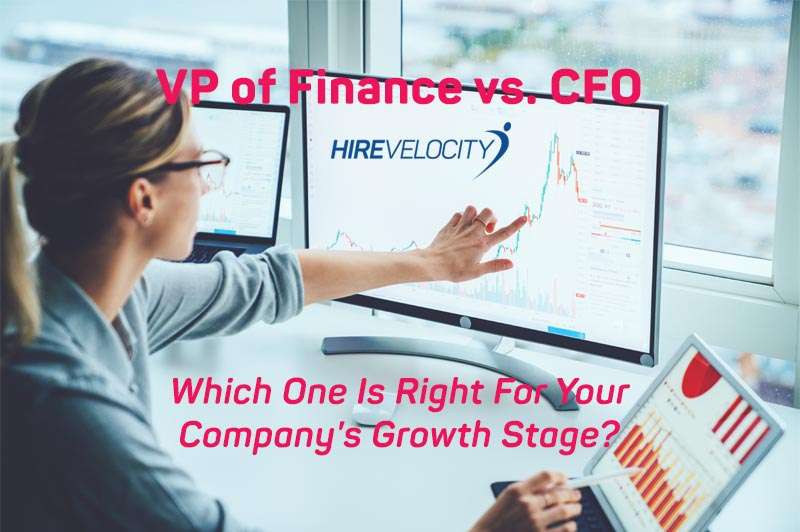
Launching, running, and growing a business lies at the heart of the American dream. There’s nothing more satisfying than seeing your hard work pay off as your client list expands and your revenue grows. If you’ve reached the point where you’re ready to take your business to the next level, however, you will also be faced with some important decisions. Taxes are becoming more complicated, cash flow management requires more strategic oversight, and you need more sophisticated protocols for reporting and internal controls. On top of that, it’s time to raise more capital and you need to start thinking about the future of your company.
These pressing needs have led you to the conclusion that it’s time to hire someone who will oversee the financial direction of your company. It’s at this point that CEOs of growing small or mid-size businesses often reach out to an executive search firm about starting a CFO search, and that’s the right move for some. But not all.
Many businesses would be better served by hiring a Vice President of Finance rather than a CFO. But what’s the difference, and how do you know which one is right for your company?
VP of Finance vs. CFO: How They Stack Up
Hiring a financial leader for your company is one of the most important decisions you’ll make as the CEO. This person will help you take the next step of growth and will work closely with you to secure the financial health of your company.
It may seem like either a CFO or VP of Finance should be able to pick up the reins and take your company in the right direction, and to a certain extent that’s true. Many CFOs act as the VP of Finance and vice versa. But the truth is that each role requires a different skill set and different strengths:
- VP of Finance – The VP of Finance is a very hands-on role. The right candidate is probably a CPA, and he or she must be willing to roll up their sleeves play an active part in balancing the books, overseeing payroll, and managing the day-to-day finances of the company. This leader ensures your financial stability in the here and now. They are sitting behind the wheel of the bus, looking out through the dashboard at what’s happening right now.
- CFO – CFOs may also be hands-on with many of the same tasks described above, but the difference is that they excel in strategic vision rather than functional administration. A strong CFO candidate knows how to take a helicopter view, telling you what’s coming up ahead and which is the best course to take.
Which One Is Right For You?
So which one does your company need? That depends on where you are now and where you are headed. Here are a few tips to help you hire the right person:
- Evaluate your business – What does your financial situation look like right now? Do you have your day-to-day finances well in hand, or are you hanging on by your fingernails? How complex are your financial goals and objectives? If the CEO manages most of the financials because there isn’t anyone else to hand it off to and you don’t have any significant growth projects (such as a merger or IPO) on the horizon, you may need a VP of Finance. However, if you already have a reliable team of accountants who handle your bookkeeping, reports, and payroll and you need someone to take your company to the next level, it may be time to hire a CFO who can help you plot the right financial course.
- Consider your growth plans – Are you thinking about an acquisition, merger, or financial investment? Are you preparing for an IPO? Is your company growing faster than you can keep up with the changes in revenue and cash flow? If that’s where you are, then you need a CFO who can see beyond the numbers in front of them and help you plan for a successful future. On the other hand, if you are still in the early stages of growth and you need someone to take your financials in hand, manage your accounting staff, and take some of the burden off the CEO, a VP of Finance may be the best move.
- Consider the candidate’s experience and strengths – If you are promoting from within or you already have someone in mind that you would like to hire, think through the strengths they bring to the table as you decide which role would be the best fit. For example, perhaps you need someone to manage your daily financials and your candidate can do that, but he or she also has the strategic vision to take your company to the next stage of growth. It may be best to go ahead and place them in the role of CFO, especially if you have plans to grow or expand your business in the near future.
As you think through your options, don’t get too hung up on the titles. This isn’t about the semantics of one title over another. It is, however, about whether the candidate can do the job you need him or her to do. If you need a CFO and you hire a VP of Finance, you’ll know it very soon (and vice versa). Consider carefully what your company’s needs are and which role would best fit your current situation. Then, talk to your executive search firm about launching your VP of Finance or CFO search based on the specific details of the role you want to fill.

